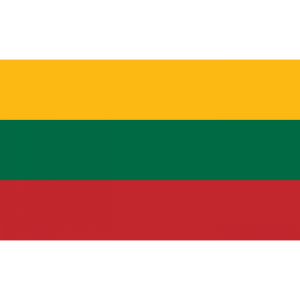Language/Lithuanian/Vocabulary/Daily-Routines
As a Lithuanian language teacher for 20 years, I understand that learning vocabulary is essential to progress in a new language. In this lesson, I will teach you Lithuanian vocabulary related to daily routines, such as waking up, eating, and going to work.
Basic Verbs
Let's start with some basic verbs that you will use in your daily routine:
| Lithuanian | Pronunciation | English |
|---|---|---|
| atsibusti | [atsɪ'bʊstɪ] | wake up |
| pasimėgauti | [päsɪ'me:gäʊtɪ] | enjoy |
| valgyti | [väl'gɪtɪ] | eat |
| eiti | ['ɛɪtɪ] | go |
Some more verbs you might find useful to learn:
- miegoti - [mʲɪɛ'gɔtɪ] - to sleep
- rytas - ['rʲi:täs] - morning
- pusryčiai - [pʊs'ritʃʲäɪ] - breakfast
- pietūs - ['pʲɪɛtʊs] - lunch
- vakarienė - [vækä'rʲi:ɛnɛ] - dinner
Daily Routine
Now that you know some basic verbs, let's see how to use them in a daily routine. Here's an example of a typical daily routine:
Morning Routine
- Atsibusti - [atsɪ'bʊstɪ] - wake up
- Pasimėgauti - [päsɪ'me:gäʊtɪ] - enjoy some quiet time
- Nusiprausti - [nʊsɪ'praʊstɪ] - take a shower
- Susirengti - [sʊsɪ'rʲeŋtɪ] - get dressed
- Valgyti pusryčius - [väl'gɪtɪ pʊs'ritʃʲɔs] - eat breakfast
Daytime Routine
- Eiti į darbą - ['ɛɪtɪ ɪ: därbɔ] - go to work
- Pietūs - ['pʲɪɛtʊs] - have lunch
- Grįžti namo - ['grɪʒtɪ nä'mɔ] - come back home
- Ilsėtis - ['ɪlstɛ:tɪs] - relax
Evening Routine
- Gaminti vakarienę - [gä'mɪntɪ väkä'ri:ɛnɛ] - make dinner
- Valgyti vakarienę - [väl'gɪtɪ väkä'ri:ɛnɛ] - eat dinner
- Atsipalaiduoti - [atsɪpälä'dʊɔtɪ] - unwind
Remember that daily routines can differ depending on the person and their schedule.
Conclusion
Learning Lithuanian vocabulary related to daily routines is an excellent way to improve your communication skills in everyday situations. I hope this lesson helps you build your Lithuanian vocabulary and feel more comfortable using the language in your daily routine.

